2015-2016 Max Weinreich Center Research Fellowships
YIVO is pleased to announce the recipients of the 2015-2016 Max Weinreich Center Research Fellowships.
With a large number of highly qualified applicants from a diverse number of countries and disciplines, the selection committee tackled the daunting task of choosing just one fellow for each category. We thank all who applied, and encourage those who did not receive an award this year to re-apply in following years.
Projects that received awards this year will entail investigation of YIVO’s rich archival and bibliographic resources in the areas of children’s literature, literary correspondence, survivor testimony, records of philanthropic activity and pogroms, and Yiddish dance, theater, and performance archives.
The projects of the 2015-2016 cohort of fellows embody YIVO’s commitment to the highest levels of scholarship and inquiry, and we look forward to seeing the results. Stay tuned for upcoming programs and public lectures featuring our fellows!
A very special thanks to our Selection Committee, which this year included:
- Dr. Elissa Bemporad, Assistant Professor of History, Queens College
- Dr. Joel Berkowitz, Professor, Department of Foreign Languages and Literature, Director, Sam & Helen Stahl Center for Jewish Studies, University of Wisconsin, Milwaukee
- Dr. Marc Caplan, Fellow at the Frankel Insititute for Advanced Judaic Studies at the University of Michigan, 2015-16.
- Dr. Gennady Estraikh, Rauch Associate Professor of Jewish Studies at New York University
- Dr. David Fishman, Professor of History, Jewish Theological Seminary
- Dr. Katherine Hellerstein, professor of Yiddish Literature at the University of Pennsylvania
- Dr. Tony Michels, George L. Mosse Associate Professor of American Jewish History at the University of Wisconsin, Madison
- Dr. Edward Portnoy, Max Weinreich Center Academic Advisor, YIVO
- Dr. Daniel Soyer, Professor of History at Fordham University
- Dr. Michael Steinlauf, Director of Holocaust and Genocide Studies and Associate Professor of History at Gratz College
- Dr. Kalman Weiser, Associate Professor at York University
Fellowship in American Jewish History
Fellowship Funds: The Rose and Isidore Drench Memorial Fellowship and the Dora and Mayer Tendler Endowed Fellowship in Jewish Studies
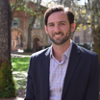 David Slucki
David Slucki
Colleagues in Destiny: Holocaust Survivor Communities in the United States
David Slucki is a Visiting Assistant Professor in the Yaschik/Arnold Jewish Studies Program at the College of Charleston. Previously, he was an Early Career Development Fellow in 2011-2013 at Monash University, where he received his PhD in 2010. He is the author of The International Jewish Labor Bund after 1945: toward a global history, (Rutgers University Press, 2012), which looks at the attempts of Bundists to rebuild and adapt their shattered movement in the wake of the Holocaust. He is also co-editor of the upcoming volume In the Shadows of Memory: the Holocaust and the Third Generation (Vallentine Mitchell, 2015), a collection of scholarly contributions and personal narratives on the grandchildren of Holocaust survivors. His current research focuses on American Holocaust survivor networks from the 1940s to the 1980s. During the period of this fellowship, he will examine the emergence of Holocaust survivor networks and organizations in the United States, focusing on the ways in which they sought to comprehend what they had experienced during World War II, as well as the ways in which they memorialized the Holocaust.
Fellowship in Baltic Jewish History
Fellowship Funds: The Abram and Fannie Gottlieb Immerman and Abraham Nathan and Bertha Daskal Weinstein Memorial Fellowship in Eastern European Jewish Studies, the Abraham and Rachela Melezin Memorial Fellowship and the Maria Salit-Gitelson Tell Memorial Fellowship
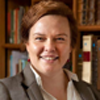 Milena Zeidler
Milena Zeidler
Transnational Jewish Relief Networks and the Emergence of Jewish Internationalism in Central and Eastern Europe, c. 1850s – 1870s
Milena Zeidler is a doctoral candidate in History at the University of Oxford, where she has been working on her dissertation Transnational Jewish Relief Networks and the Emergence of Jewish Internationalism in Central and Eastern Europe, c. 1860s-1870s. She is a Random House Graduate Scholar in Jewish Studies at Oxford’s St. Catherine’s College.Milena completed her Masters in Jewish Studies at Oxford, having previously earned Masters in History and Jewish Studies from Central European University in Budapest, Hungary, and Masters in Political Science and International Relations from A. Mickiewicz University in Poznan, Poland. Her wider research interests lie in the area of Digital Humanities, ranging from design to text encoding to mapping, with a focus on finding new ways of querying and presenting extensive historical data.Milena is currently a Deputy Director of the Oxford’s LMML (Bodleian) Jewish Studies Library, and a Digital Fellow at the Cultures of Knowledge Project – Early Modern Letters Online. Milena’s dissertation Transnational Jewish Relief Networks and the Emergence of Jewish Internationalism in Central and Eastern Europe, c.1860s-1870s, focuses on the study of networks, which emerged during and in the aftermath of the Lithuanian Famine (1867-69) and Persian Famine (1871-72), two single-issue relief campaigns. These two case studies provide a wealth of information on the emergence and proliferation of large-scale relief engagement, transcending communal or local and regional boundaries.
Fellowship in Eastern European Jewish Studies
Fellowship Funds: The Professor Bernard Choseed Memorial Fellowship and the Natalie and Mendel Racolin Memorial Fellowship
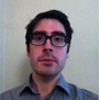 Thomas Chopard
Thomas Chopard
The First Catastrophe of East European Jewry: Wars, Pogroms, Displacements and Survival, 1914-1924
Thomas Chopard is a PhD candidate in History at the EHESS, in Paris, France. His current research deals with anti-Jewish violence during the First World War and Civil War in Eastern Europe (1914-1924). During this decade, State-sponsored forced displacements and politics of terror heavily affected the Jewish populations. Especially between 1917 and 1924, all wartime actors perpetrated pogroms. Jews were blamed for treachery, speculation, and, ultimately, Bolshevism, and pogroms were used as a tool to reshape Eastern Europe nationalities after repartition.
Fellowship in Eastern European Jewish Literature
Fellowship Funds: The Vladimir and Pearl Heifetz Memorial Fellowship and the Vivian Lefsky Hort Memorial Fellowship
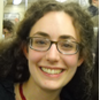 Sonia Gollance
Sonia Gollance
Harmonious Instability: (Mixed) Dancing and Partner Choice in German-Jewish and Yiddish Literature
Sonia Gollance is a doctoral candidate in Germanic Languages and Literatures at the University of Pennsylvania, and a Spring 2015 doctoral fellow at the Franz Rosenzweig Minerva Research Center for German-Jewish Literature and Cultural History (Hebrew University of Jerusalem). Her dissertation project, Harmonious Instability: (Mixed) Dancing and Partner Choice in German-Jewish and Yiddish Literature, explores the motif of Jewish mixed dancing in Yiddish and German literature from the mid-19th century to the mid-20th century. In a phenomenon typically overlooked in cultural studies scholarship, Eastern European Jews adapted European partner dances for their own celebrations, where such dances served as a sign both of community engagement and of the influence of modernization. Authors embraced this paradox in their fiction, employing the trope of dance to give characters the illusion of freedom before pushing them towards an unsettling, even violent, conclusion. While at YIVO, Gollance will examine the archival collections of Abraham Cahan, Yosef Opatoshu, and Kadya Molodowsky and situate her corpus in the cultural practice of Jewish dance by looking at YIVO's sound, video, and art collections, as well as the Felix and Judith Fibich Collection.
Fellowship in Eastern European Jewish Music, Theater and Arts
Fellowship Fund: Joseph Kremen Memorial Fellowship
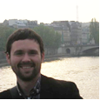 Nick Underwood
Nick Underwood
Staging a New Community: Jewish Immigrant Culture in Interwar France, 1920-1940
Nick Underwood is a PhD candidate in modern European and Jewish history at the University of Colorado Boulder. His dissertation, titled “Staging a New Community: Jewish Immigrant Culture in Interwar France, 1920-1940,” is the first cultural history of the interwar immigrant Yiddish-speaking Jewish community in Paris. With a specific focus on Yiddish theater, chorus groups, and cultural institutions, Underwood's dissertation attempts to provide a more complete understanding of how immigrant Jews in Paris balanced Jewish, French, and leftist cultural norms in order to define their community as simultaneously nationally French and transnationally Jewish and antifascist. His research at YIVO will focuses on Yiddish cultural institutions, such as the Kultur-lige Pariz and Medem Farband (Arbeter-ring Pariz), Yiddish theater, and Yiddish chorus groups, such as the Yidisher folks-khor based in Paris during the interwar period.
Fellowship in Polish Jewish Studies
Fellowship Funds: The Aleksander and Alicja Hertz Memorial Fellowship and the Samuel and Flora Weiss Research Fellowship
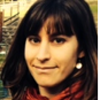 Amy Kerner
Amy Kerner
What remains? The language remains’: Multilingual Polish-Jewish intellectuals and Yiddish (1944-1965)
Amy Kerner is a doctoral candidate in Modern European History and Modern Jewish History at Brown University. She holds a BA in Comparative Literature from Brown, and an MA/MSc in International and World History from Columbia University and the London School of Economics. Broader interests include: cultural imperialism and global Europe; the incorporation of first-hand accounts into Holocaust history; and the politics of language death. Amy’s research focuses on the relation between multilingualism and Holocaust historiography, and specifically the postwar Yiddishism of Polish Jews. Her dissertation explores the linguistic subjectivities of Polish Jewish historians and publishers as they worked to rescue and create Yiddish culture into the 1960s.
The Workmen’s Circle/Dr. Emanuel Patt Visiting Professorship in Eastern European Jewish Studies
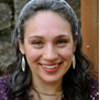 Miriam Udel
Miriam Udel
Grimmer than Grimm? Twentieth-Century Yiddish Children’s Literature
Miriam Udel is assistant professor of German Studies and Jewish Studies at Emory University, where her research and teaching focus on Yiddish literature and culture. She holds a doctoral degree in comparative literature from Harvard University. Her first book, Never Better!: The Modern Jewish Picaresque, forthcoming with the University of Michigan Press in early 2016, is a fresh account of how Yiddish literary modernism emerged and what made it distinctive among European modernisms. Her new research focuses on Yiddish children's literature and comprises two projected books: an annotated, translated anthology that will help to define a corpus, as well as a scholarly study of its significance.
The Dina Abramowicz Emerging Scholar Fellowship
 Chantal Ringuet
Chantal Ringuet
Two Jewish Women Writers in North America: Rachel Korn (1898-1982) and Kadia Molodowsky (1894-1974)
Chantal Ringuet is a scholar, an award-winning poet, a literary translator and a literary critic. She holds a Ph.D. in Literary Studies from l’Université du Québec à Montréal (UQÀM). In 2007-08, she received a SSHRC postdoctoral fellowship at the U. of Ottawa for a project entitled, “Cultural interactions in Montreal:The Yiddish Writers.” Her first book of poetry, Le sang des ruines, was awarded the Prix littéraire Jacques-Poirier 2009. In 2014, she published a bilingual (EN-FR) collection of poetry entitled Under the Skin of War (Ottawa, BuschekBooks) inspired by the photographs of Don McCullin. She is also a literary translator from English to French and from Yiddish to French. In 2013, she edited Voix yiddish de Montréal, the first French language anthology of Yiddish literature in Canada, in which her own translations appear. She is a research associate at the Concordia Institute for Canadian Jewish Studies.




